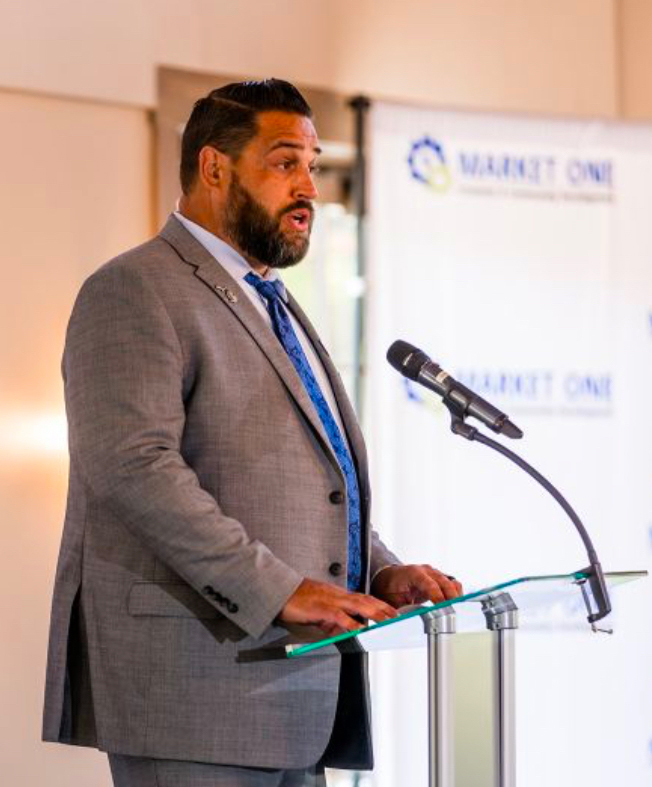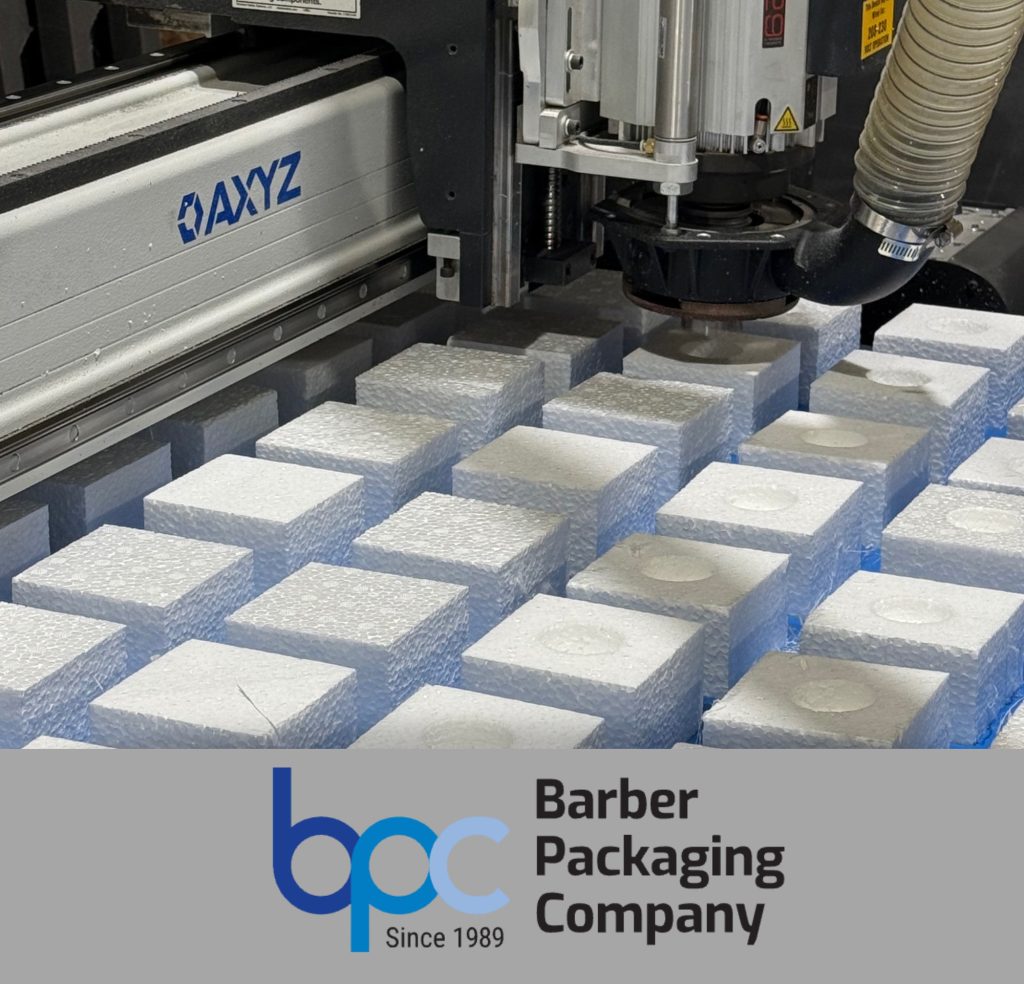Celebrating its 35th anniversary this summer, Barber Packaging Co. is laser-focused on strategic growth and building capacity.
The Bangor, Michigan-based manufacturer specializes in turnkey industrial packaging solutions that use components like foam, plastic, wood and steel. Founded in 1989 by Dave and Marilyn Barber, the company remains family-owned and operated, with Luke Barber, Dave’s nephew, now at the helm as president and CEO.
Luke initially entered the company as a salesperson in 2010. He was brought on board to sell dunnage (loose material that secures cargo during transportation) without any experience in the manufacturing industry. “I entered this business from stage left,” Luke says. “I wasn’t educated in this business, and my pedigree did not prepare me for this.”

Albeit an industry newcomer, Luke has been a quick study, and Barber Packaging has thrived under his leadership. With two plants and a warehouse in Bangor, the company has approximately 80,000 square feet of manufacturing and storage space. When running at high capacity, they have as many as 80 employees on staff.
In fact, it’s this powerhouse team that Luke credits with much of Barber Packaging’s success. For him, the phrase “family business” extends far beyond the Barber name, encompassing the entire company. When his father, president at the time, died unexpectedly in 2018, the team played a large role in supporting the business and Luke’s transition.
“We all went shoulder to shoulder stepping on to the battlefield and did what needed to be done — not just to save the company, but to really flourish,” Luke says.
One of the keys to this high performing team is empowerment, Luke says, explaining that Barber Packaging uses a three-step approach to decision-making. Before acting, employees must ask themselves:
- Is this good for our team?
- Is this good for our customer?
- Am I willing to be held accountable for the outcome of this decision?
If the answer to each of these questions is “yes,” then any team member is free to make a given decision independently. This approach encourages operations to remain sturdy yet flexible, with each employee moving quickly and responding to customer needs as they arise, Luke says. Indeed, these qualities have allowed Barber Packaging to build capacity for the past seven years.
To further scale the business, Barber Packaging participated in the foundation’s System for Integrated Growth (SIG). Hosted in partnership with the Michigan Economic Development Corporation (MEDC), SIG connects participants with experts to leverage research and best practices across a variety of business topics.
During their first SIG engagement, Barber Packaging concentrated on strategic growth planning. “Our growth plans had always been loosely talked about,” Luke says. “They were in my head, and we talked about them with team members, but we had never broken that down.”
In response, SIG specialists helped Barber Packaging identify its tactical priorities at a granular level. With actionable steps established, they now have a clearer picture of opportunities in the marketplace.
Members of Luke’s leadership team also participated in the SIG engagement — sharing real-time feedback and crafting key initiatives to move the strategy forward. Now, Luke observes, each team member has bought into company strategy and operates as a key stakeholder in the business.
This success led to a second SIG round with a focus on sales and marketing. One of the outcomes from this engagement was a list of nearly 2,000 potential customers, which has enabled Barber Packaging to consider new industries and construct a formal sales process. In addition to SIG, Luke has participated in a number of the foundation’s leadership retreats and roundtables, which have introduced him to other second-stage leaders. The ability to connect with peers has also been integral to growing Barber Packaging, he observes.
“When you’re operating a small business and trying to grow a small business into a market space, many times you feel like you’re out there by yourself,” Luke says. “I can’t tell you what a blessing it’s been to be poured into by the Edward Lowe Foundation and the team there.”
The MEDC has also been a notable influence throughout Barber Packaging’s journey, Luke adds. He commends their recognition and support of second-stage businesses across Michigan. Second-stage businesses have “the greatest potential for explosive growth and fruitful harvest back into our state’s community,” he says.
